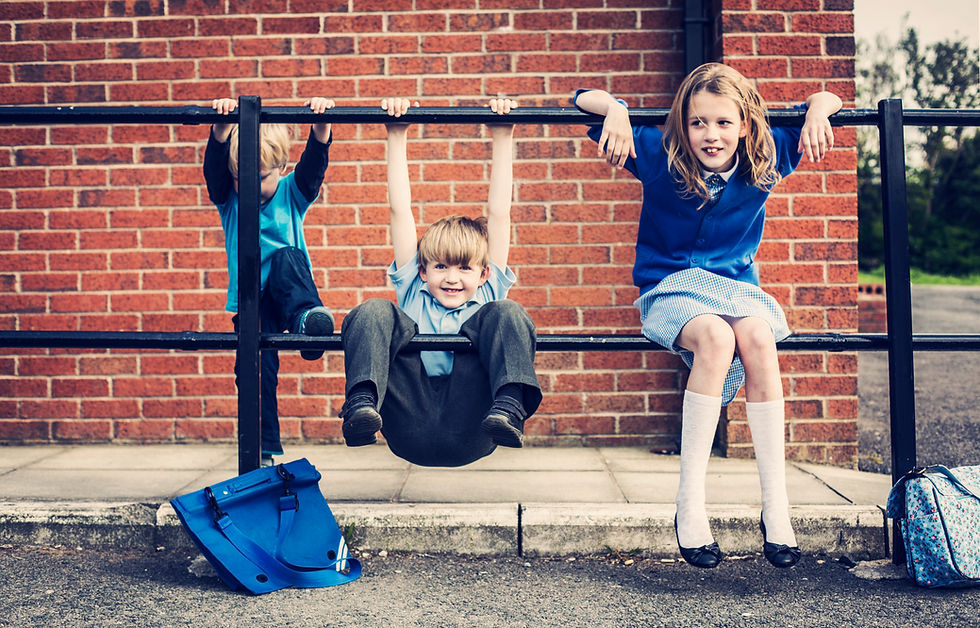You've Got A Friend...
- alicemarshment
- Jun 3, 2025
- 3 min read

Parents and carers of children and young people whose Special Educational Needs and Disabilities ("SEND") result in Social, Communication and Interaction ("SCI") differences often worry about the impact this will have on their ability to make and sustain friendships. And it is true that the friendships of these children and young people may not look the same as the ones that you as their parent/carer remember from your own schooldays or those of their siblings who do not have SEND. They may for instance be people that they interact with online rather than in person, at least at the beginning. The truth is, despite what stereotypes would have you believe, most children and young people with SCI differences want and are able to form meaningful bonds with other people. But it is also true that they might require a little more in the way of support to do so. Here are some practical ways that their journey navigating the social dynamics of friendships can be made a little easier:
Explain friendships clearly
It may sound obvious, but for some children and young people it isn't at all clear what a friend is and isn't, and so setting clear expectations - for example, friends are people who are nice to us and who we have fun with but don't always have to agree with - can be extremely important. Friendships frequently contain a lot of gray areas, and it can be tricky for some children and young people to understand how someone can still be their friend even if they sometimes fall out. Similarly, children and young people with SCI differences often fail to notice and/or understand the unwritten rules of verbal and non-verbal communication which can make them more vulnerable than their peers, and so these might need to be explicitly taught.
Prepare you child for social situations
Many children and young people are likely to find situations where they will interact with other people less anxiety inducing if they have a clear idea of what is going to happen and in what order. Whilst it is never possible to predict with total accuracy how every social interaction will play out, social stories in the form of visual aids such as a simple cartoon strip or drawing, can help some children and young people anticipate possible scenarios and think through how they might want to approach them. It's also important not to force children and young people into situations that they will be unable to cope with, even if it something you (or indeed they) think is really important/necessary/fun.
Help your child find children who share their interests
Having things in common can provide a structure for friendships thorughout life - think of the friends you made at work or at the school gate - and that can be particularly helpful for children and young people with communication differences. Parents, carers and schools can all support this - for example, through activity clubs for sports, games, art or music. Many children and young people will not naturually graviate towards team sports, but there are other sports such as bouldering and skateboarding which are not played in teams, but still allow for shared interests social interaction.
Set up activities
In the same vein, open-ended, free-flowing social situations may prove more challenging for children and young people with SCI differences than activities where there is a clear purpose - for example, a craft or Lego building. Particularly for younger children, think about supporting them by setting up these activities in advance (making sure any special toys are safely put away) if another child comes to play. Older children and young people may find their people in youth groups specifically targeted (both officially and unofficially) at those with SEND; information about the former should be available on your council's Local Offer page.
Provide breaks in social situations
Social situations can be more exhausting for children who struggle with SCI and it isn't always obvious when they are on the point of reaching overwhelm. In the same way that your child or young person may need learning breaks at school, offer breaks, perhaps for a drink or a snack so as not to draw undue attention, during social occasions where they are in danger of becoming tired and dysergulated. This is esepcially important at events such as parties when large numbers of people, heightened emotions and the expectation to be having fun can be too much for many children and young people to manage.
If your child or young person struggles with aspects of communicaiton and interaction including language and social communication, SEND Advocacy can help you to ensure that they receive the support that will enable them to thrive. If you need someone in your corner to help you secure the education your child deserves, contact SEND Advocacy today.








Comments